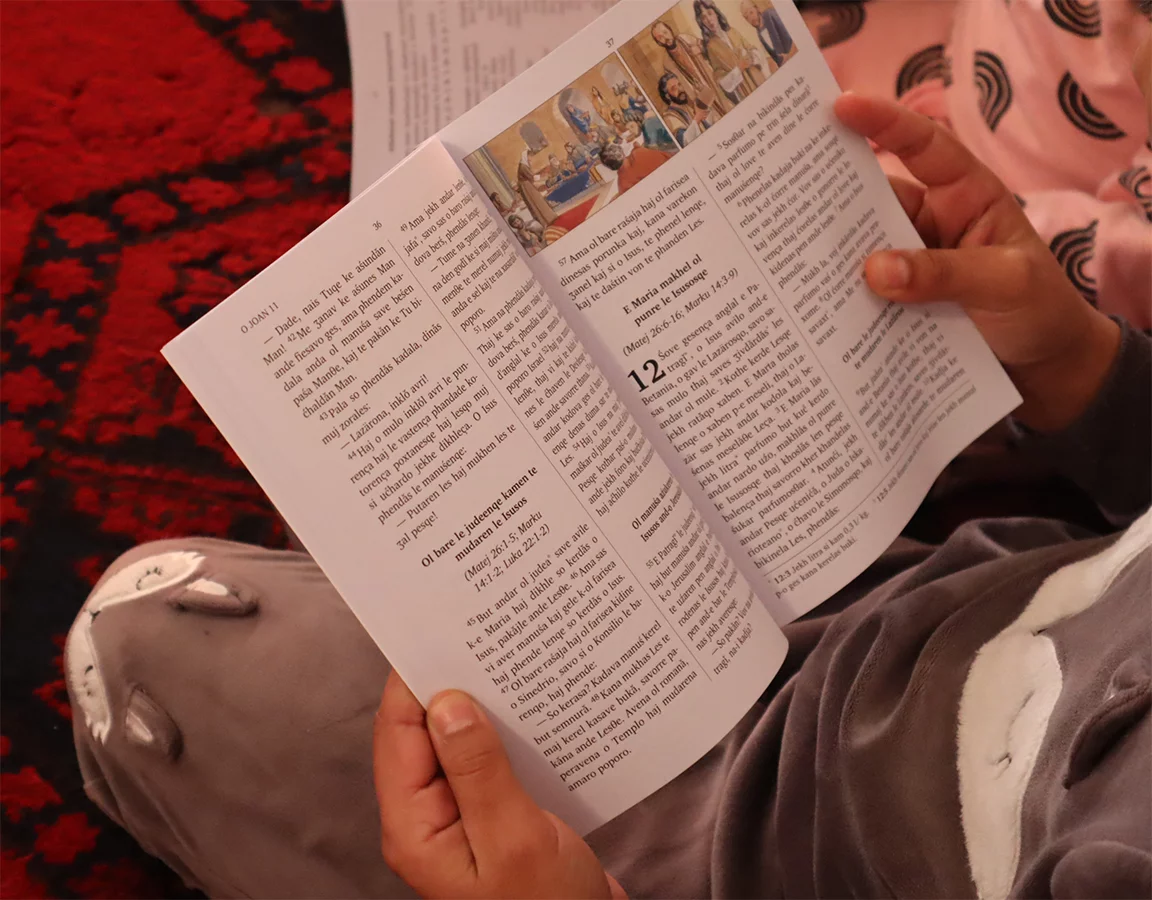 Roma schoolchildren read the Standard Romani Scriptures
Roma schoolchildren read the Standard Romani Scriptures
Another church leader, Pastor Petru, stood up in front of his church, the book in his hand. Then he said to his congregation, ‘You have no more excuse not to read the Bible! Now it’s in your language.’
That sort of story is being repeated wherever the team goes. The Roma people are embracing God’s word in their language.
A sense of identity
In June, Robert and his colleagues attended a conference where a number of Roma church leaders were present. They showed these leaders some materials to help with teaching, preaching, and Bible study group leading in Standard Romani.
It was eye-opening for several leaders, who suddenly recognised the need to embrace their Roma identity in themselves and in their churches.







